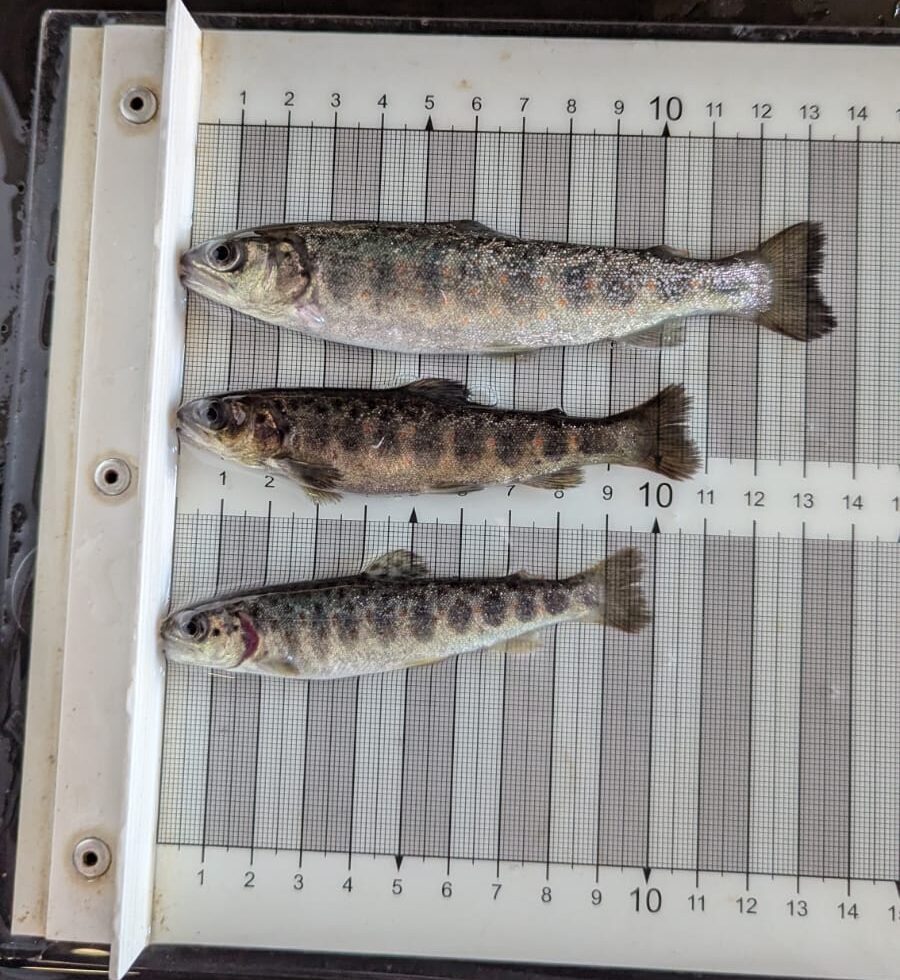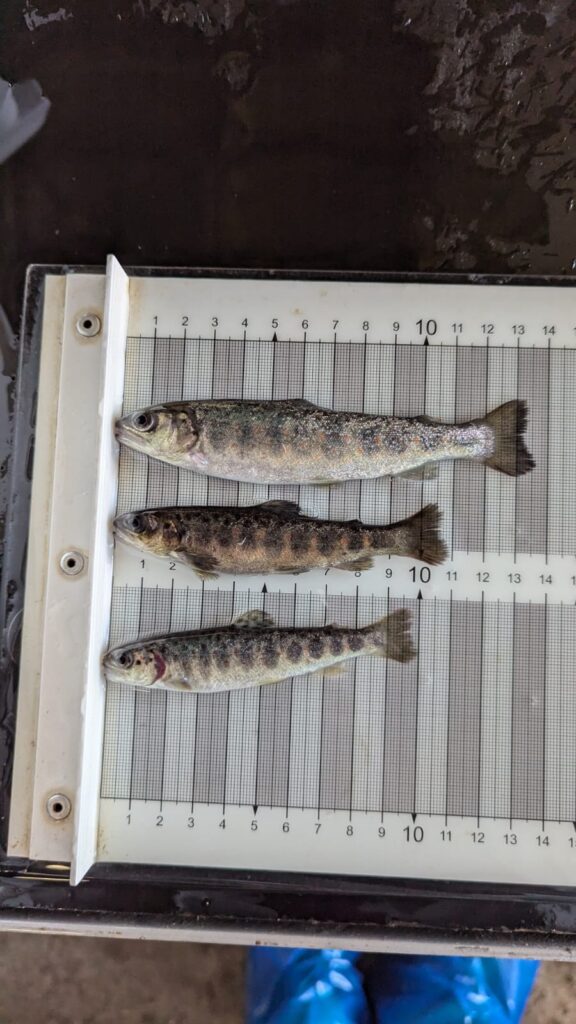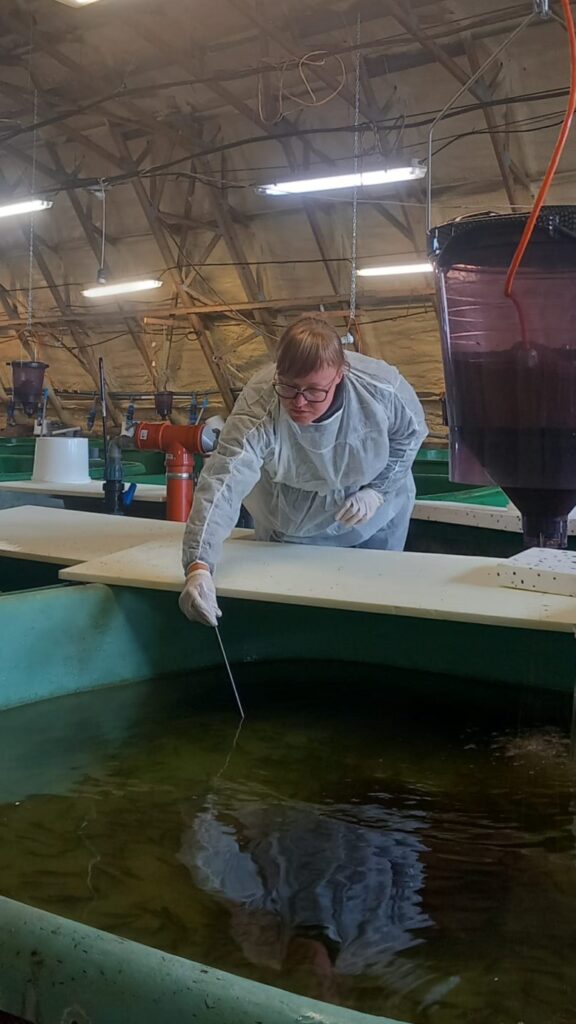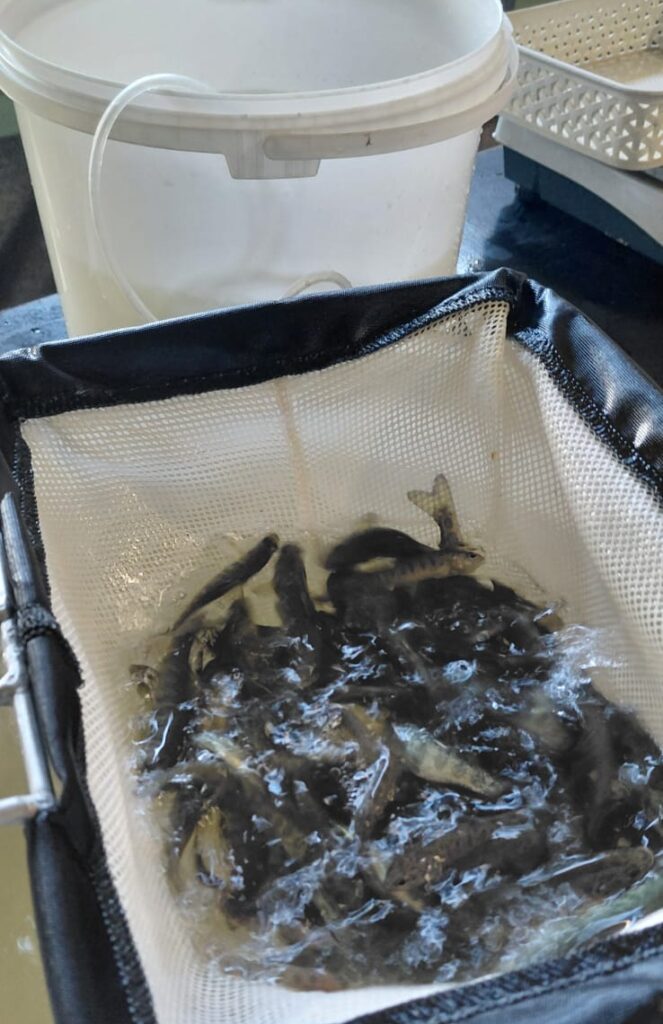Can probiotics help aquaculture fish grow healthier and faster?
The SPPwelfare project investigated how probiotics, administered either through feed or bathing, influence the development of Atlantic salmon (Salmo salar) at different life stages. The results show that by carefully selecting the appropriate method of probiotic application for each developmental stage, fry mortality can be reduced by up to 20%, growth improved by 30–35%, gill necrosis decreased, and – in the case of salmon – smoltification promoted!
The study also demonstrated that the effectiveness of probiotics depends on environmental temperature. The probiotics tested (SmartFishery, SIA Baltic Probiotics, Latvia) were most effective under warmer conditions (≥15 °C).
Effect of probiotics on different stages of fish development:
1. Larval stage
- In the group where larvae were bathed with probiotics, mortality was reduced by up to 20% compared to the control.
- In the group where probiotics were added to the feed, larvae at higher temperatures (18–20 °C), showed greater resistance to heat stress and fluctuations in oxygen concentration in the system, and also maintained feeding activity.
2. Juvenile stage
- Fry were bathed with probiotics showed ~15% higher growth rates were observed.
- When probiotics were added to the feed, in the incidence of gill cover necrosis decreased by up to 40%.
3. Presmolts
- Under the influence of probiotics, presmolts almost doubled their growth rates compared to the control.
- When taking probiotics together with the feed, the fish achieved the greatest weight gain (+35% compared to the control). Fulton’s condition coefficient was also higher in the probiotic groups, indicating better overall health.
Pathogens and Antibiotic Resistance.
Antibiotic-resistant Aeromonas and Pseudomonas bacteria species, detected at the beginning of the study, were no longer present after 14 days in groups treated with probiotic baths. This suggests that probiotics may be a promising tool to reduce the risk of antimicrobial resistance.
Further results: the effect of same probiotics on pikeperch fingerlings grown in the RAS is being actively studied!





